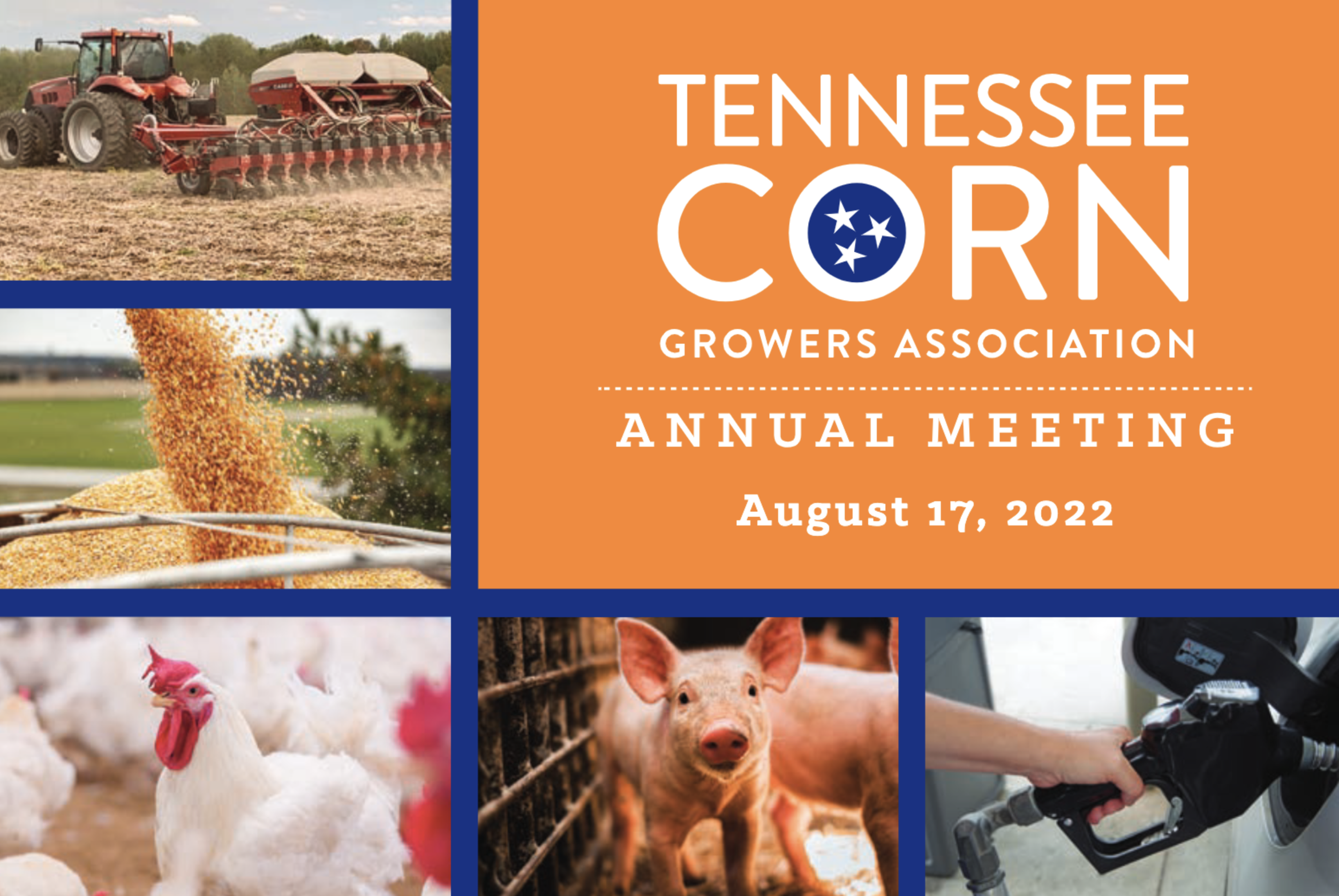Every year, we’re reminded how dangerous grain storage can be. According to Purdue University, approximately 15-20 documented entrapments occur per year. An estimated 62% of documented grain entrapments result in death and based on historical data, roughly 70% of the documented entrapments occur on farms.
Read MoreThe meeting will begin on January 17, 2023, at 1 p.m. and conclude at 4:30 p.m. CST at the Wildwood Resort and Marina located at 7316 Granville Hwy, Granville, Tenn. The meeting will reconvene on January 18, 2023, at Catesa Farms located at 780 Dixon Springs Highway, Riddleton, Tenn. from 9 a.m. to 11 a.m.
Read MoreTennessee Corn is seeking input from Tennessee corn farmers. We want your input regarding the investment of corn checkoff resources. We strive to serve Tennessee corn growers and use resources in the most efficient and effective way possible – and we can only do that with your feedback!
Read MoreIn celebration of Tennessee agriculture, volunteers throughout the state will gather to read books with an agricultural theme to students to promote agriculture awareness and knowledge in local schools. In 2021, nearly 10,000 students were reached in all 95 counties of Tennessee.
Read MoreAs we approach the busiest grain export period of the year, U.S. waterways are critical to moving grain from the heart of America to the Gulf Coast.
Read MoreThe Report includes the Chairman’s Report from George McDonald, highlighting the programs supported by Tennessee corn growers, as well as stats on Tennessee's corn production numbers and a breakdown of the fiscal year’s funded initiatives, including research, consumer education and promotion, market development and national partner support.
Read MoreThe Tennessee Corn Growers Association (TCGA) elected a new board member and officers for the 2022-2023 year at its recent annual meeting.
Read MoreOne of Tennessee Corn’s primary goals is to educate consumers on the good environmental practices utilized by Tennessee corn farmers and the economic importance corn and its value-added products bring to the state of Tennessee and local communities. This educational work begins with students in the classroom.
Read MoreAs the executive director of the Tennessee Corn Promotion Council, you can most likely find Carol Reed working on any sort of task or project related to supporting Tennessee corn growers. Whether that’s educating consumers on the economic value of Tennessee corn, providing resources for Tennessee educators to effectively integrate agriculture into the classroom, or helping create new marketing opportunities for Tennessee corn growers, Carol’s work life highly revolves around corn. But it hasn’t always been that way.
Read MoreEvery day, Tennessee corn farmers are striving to meet the growing demands for food, fuel and fiber. Being able to adapt to new technologies and farming practices in an ever-evolving market calls for a highly skilled workforce adept to modern farming practices.
Read MoreDr. McClure has always been driven to find answers to the challenges farming brings. In fact, most of her career has been dedicated to crop research so that producers can make more informed management decisions.
Read MoreDetermining site-specific nitrogen fertilizer for corn could help farmers save significant amounts on fertilizer, reducing their production costs, optimizing plant growth, and boosting yield.
Read MoreWhile most soil and nutrient management information is disseminated through in-person training, field tours and popular press, the new UT Soil site makes it easy for producers to access information in order to make reliable management decisions.
Read MoreTennessee Corn growers are proud to contribute to cleaner, lower cost fuel choices, and support the continued availability of E15. Since the announcement, Tennessee Corn has worked quickly to share information on the environmental and energy solutions that ethanol provides at home and beyond.
Read MoreLast week, President Biden announced that E15 will be sold this summer to reduce gasoline prices. E15 is a plant-based fuel typically made from corn grown in Tennessee. Often marketed as Unleaded 88, E15 is a renewable resource that’s made with regular gasoline and a smaller amount of ethanol. E15 will now be made available this summer at select gas stations throughout Tennessee.
Read MoreThrough its Precision Ag & Conservation program, Quail Forever is working directly with commodity producers to help them utilize on-farm technology.
Read MoreStorage is a powerful risk management tool for Tennessee corn producers. Storage allows producers to reduce harvest delays, avoid seasonal price lows during harvest, expand their marketing window, and harvest grain at higher moisture – if drying or aeration is available. There are two main options to store grain: grain bins and grain bags. Is one better than the other? What do prep and maintenance look like for each? And what are the operating costs?
Read MoreDrumroll… Tennessee Corn’s second annual photo contest winners have been selected! We received many wonderful photos to help us tell the story of Tennessee agriculture. A winning image and runner-up were selected by a panel of judges in each of the following categories: Corn, Cornfields & Equipment, Farm Scenery & Landscapes, and Farm Families.
Read MoreNearly every gallon of gasoline in the U.S. contains at least 10 percent ethanol derived from corn. Each year, roughly 30 percent of field corn goes into fuel ethanol. And studies have shown that corn-based ethanol produces 39 percent less greenhouse gas (GHG) emissions than conventional gasoline.
Read More



















